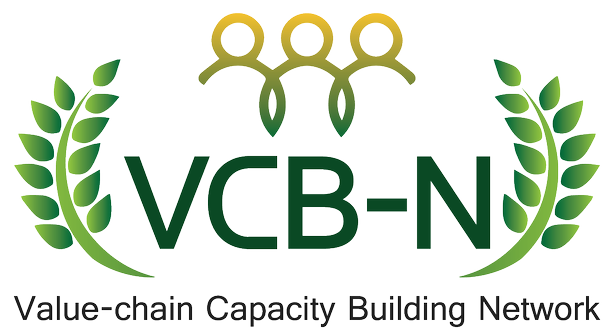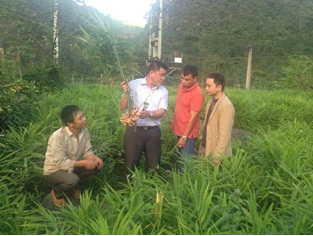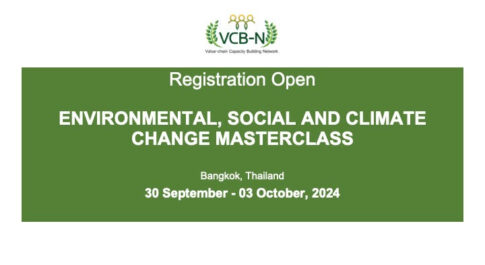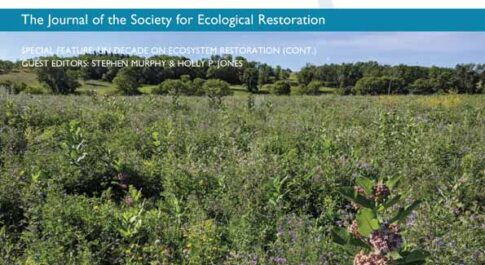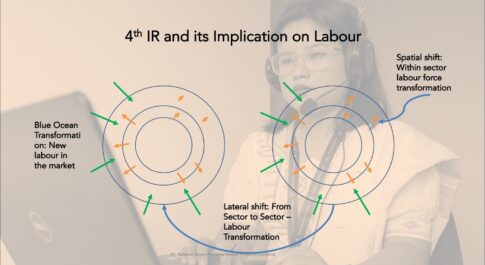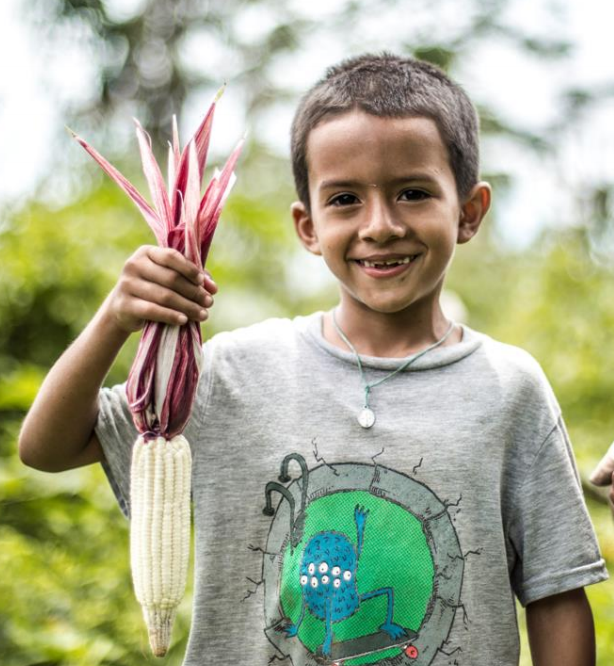
Good practice
Organic Farming Technology Transfer through Public-Private Partnership in Pursat
The following good practice is conducted by Dr. Meas Pyseth. The case study was selected and presented in Mekong Knowledge and Learning Fair (IFAD) by representative from Cambodia.
(For presentation in the event, please click here)

Background
Provincial Department of Agriculture, Forestry and Fisheries (PDAFF)-Pursat provided 50 percent support to Mith Kassekor Chamnan company, from the funds provided by the Agriculture Services Programme for Innovation, Resilience, and Extension (ASPIRE) in the provision of agriculture extension services and the use of organic fertilizers. The agriculture extension activity started with the selection process of interested smallholder farmers who are direct beneficiaries of the Programme. Mith Kassekor Chamnan is the contracted partner firm of the Provincial Department of Agriculture, Forestry, and Fisheries in Pursat Province that provided extension service on the proper use and application of organic fertilizers, using natural bio-ecological system.
The organic fertilizers that the company has introduced to farmers are carbon-based compounds that increase the productivity and growth quality of plants. This demonstration activity has been proven and tested successfully for more than two (2) years, just after Pursat received assistance from ASPIRE in 2016.
About ASPIRE program
Innovations / Good Practices
The Organic fertilizers introduced by Mith Kassekor Chamnan have various benefits over chemical fertilizers, which include the following:
- Non-toxic Food: Use of these organic fertilizers ensures that the food items produced are free of harmful chemicals.
- On-Farm Production: The majority of organic fertilizers can be prepared within the local community or on the farm itself. Hence, the cost of these fertilizers is much lower than the cost of chemical fertilizers.
- Low Capital Investment: In addition to the on-farm production possibilities of organic fertilizers, organic fertilizers help in maintaining the soil structure and increasing its nutrient-holding capacity and arability.
- Fertile Soil: Organic fertilizers ensure that the farms remain fertile and intensified productions.
- Safe Environment: Organic fertilizers are easily bio-degradable/ celebrity bios and do not cause environmental pollution as well as negative impact free.
- Employment: Organic fertilizers are prepared locally and on a much smaller scale. As a result, the production of organic fertilizers leads to employment in the rural communities of Pursat.
Impact
Mith Kassekor Chamnan have taught the farmers in making more efficient use of natural resources and processes, improved nutrient recycling, innovative agro-ecological methods for making optimal use of nutrients in the soil. Organic cropping systems and the use of organic fertilizers in the beneficiary communities have made the farmers’ agriculture activities in Pursat more productive, stable (yield and quality) while at the same time robust, resilient and environmentally friendly.
The process of forming vegetable producer groups members – By selecting the only interested and potential farmers among 200members as a total and as a result only 8/200 (4%) highly interested and potential farmers among all were meeting with selection criteria for joining ASPIRE programme by demonstrating field technical demonstration for technical adoptions and replications among all members, the firm starts to conduct 8 plots of intensified and diversified vegetables growing demos for field learning and practicing. There are 25 farmers in one plot of land as a plot is equal to 15 meters multiply by 25 meters.
The total beneficiaries receiving extension service delivery by this PDAFF’s Firm (276/250=110%) over planned targets and the early outcome referring to the trained and practiced farmers will reinforce the technical capacity for recycling vegetables production and generating incomes.
Stakeholders committed promoting organic fruit and vegetable
Facilitating Factors / Challenges
Farmers have the conception that adding large quantities of fertilizers in their farms will only be beneficial to their plants. However, according to Mith Kassekor Chamnan, since fertilizers are substances that are rich in nutrients, they are meant to be added in small quantities. The company suggests the following points for fertilizer application:
- Soil Analysis:A thorough analysis of the soil should be conducted before planting the crops.
- Time of Application:The time when you apply the fertilizers is also crucial.
- Quantity of Fertilizers:When farmer is in doubt about the quantity of fertilizer to be added, he should add less fertilizer to be on the safe side.
The smallholder farmers and the company experienced several challenges at the start-up because of inadequacy of funds. However, with the contribution of farmers and some local Agriculture Cooperatives within the community, issues related to finances were solved.
Lessons Learned
For Mith Kassekor Chamnan, small demonstration plots provide a backdrop on which to demonstrate and teach appropriate technologies, as well as venues to test new methods side by side with traditional methods in the use of chemical fertilizers and organic fertilizers. Although demonstrations require considerable time and effort, the payback comes when the smallholder farmers more readily adapt practices they perceive to be effective and appropriate under local conditions. This is known as “seeing is believing” in organic farming.
As part of the demonstration activity, PDAFF-Pursat and the company have established eight (8) demonstration plots, where on-farm demonstrations serve as one of the most effective agriculture extension education tools on the use of organic fertilizers.
The organic system of farming introduced by Mith Kassekor Chamnan in Pursat relies mostly on crop rotations to manage nutrient cycling and to break the reproductive cycles of pests, weeds and diseases. In their natural bio-ecological system introduced to the farmers in Pursat, crop rotation does not necessarily mean that organic fields will be empty or cropped to non-food species when the main crop is not there. Organic farming as a means for ecological intensification of agriculture in Pursat requires a systems approach to farming that considers processes at the field, farm, and landscape. It is much more than conventional agriculture without inputs. Implementation at larger scale will require integration of activities within individual farms and also between different farms.
Recommendations
ASPIRE programme has engaged successfully with the service of private firm in the share of cost from its spending package plan, and the next step is just to pay higher attention on the service provider’s outcome. The firm needs to play further facilitating roles in the process of vegetable production and coordination the market beyond the project. The firm has already coordinated and built the capacity to vegetable producer groups but it needs to do more on linkage the market actor to farm gate.
You may want to read
